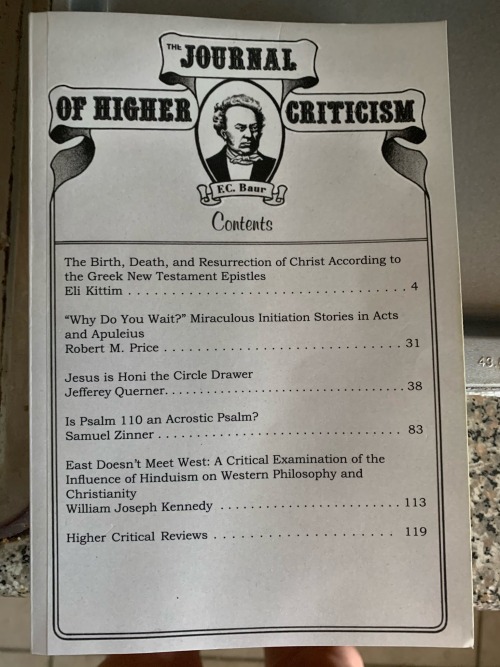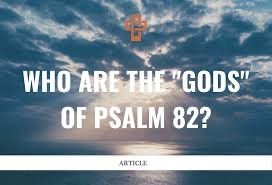
Author of “The Little Book of Revelation.” Get your copy now!!https://www.xlibris.com/en/bookstore/bookdetails/597424-the-little-book-of-revelation
447 posts
Breaking News

Breaking News‼️
The War of Gog & Magog Has Begun❗️
Follow this Twitter list for news & live updates from multiple sources. It’s a Twitter list called “Eli Kittim Prophecy News”:
https://mobile.twitter.com/i/lists/200355615
https://href.li/?https://mobile.twitter.com/i/lists/200355615
-
 jbird271 liked this · 2 years ago
jbird271 liked this · 2 years ago -
 gin74-p liked this · 2 years ago
gin74-p liked this · 2 years ago -
 aah8903 liked this · 3 years ago
aah8903 liked this · 3 years ago -
 kuuderekun reblogged this · 3 years ago
kuuderekun reblogged this · 3 years ago
More Posts from Eli-kittim

OPEN ACCESS AND THE BIBLE: The Bible and Interpretation
This is Eli Kittim’s academic monograph——published in the Journal of Higher Criticism, vol. 13, no. 3 (2018), page 4—-entitled, "The Birth, Death, and Resurrection of Christ According to the Greek New Testament Epistles."
To view or purchase, click the following link:
https://www.amazon.com/Journal-Higher-Criticism-13-Number/dp/1726625176
_______________________________________________

Should Women Preach in Church?
By Author Eli Kittim 🎓
During a time when *women* were considered second-class citizens, Christianity held some of them in the utmost esteem and regard. As a case in point, the very first person to ever see Jesus alive after his purported resurrection was a *woman* named Mary Magdalene! In the Old Testament, Miriam prophesied and addressed the nation, Deborah was the chief prophetess who commanded armies and was the 4th Judge of Israel, while Huldah was an advisor to the King, as well as a principal prophetess in the Nevi'im (Prophets) portion of the Hebrew Bible. Does that sound like women who were NOT permitted to *speak* out loud or to teach? Of course not!
In the New Testament, Paul permitted Phoebe, a female deacon, to recite scripture to a house church. Moreover, in Romans 16.7, Paul refers to a certain *woman* named Junia (Ἰουνίαν) as being “highly respected among the apostles.” Paul uses the Greek term ἐπίσημοι, which means “notable,” to refer to both Andronicus and Junia. The general scholarly presumption has been that Junia was Andronicus’ wife, although they may have been siblings, father and daughter, friends or acquaintances, and they could have been Paul’s kinsmen biologically, spiritually, or even metaphorically. The word that Paul employs to refer to Andronicus and Junia is ἐπίσημοι, which means “notable,” “illustrious,” “outstanding,” relating to office or position. So, a *woman* in first-century Palestine is given the highest honor by being referred to as a notable or outstanding apostle! This suggests that she can certainly hold her own in any discursive argument or Biblical debate.
There are certain precepts in the Old Testament that continue to be observed today, while there are others that are not. For example, the ceremonial law is no longer applicable. It once related to Israel's worship (see Lev 1.1-13). However, following the purported death and resurrection of Jesus these laws were no longer necessary.
Then there was the Civil Law. This law dictated and governed Israel's daily living (see e.g. Deut 24.10-11). However, our modern culture and society are so different that these outdated guidelines no longer apply. Even if we believe in the inspiration of scripture, we still have to consider some of these guidelines as cultural codes of conduct that were specific for that particular historical period. They had a historical significance but are no longer appropriate. For example, the prescriptions on beards (Lev. 19.27), or on hair (Lev. 21.5), the types of fabrics or clothes that were permissible, as well as the dietary laws were all part of the Sitz im Leben, namely, that particular historical period which has very little to do with our own. And that’s why they have been discarded.
Similarly, Paul’s suggestions about how *women* should dress or behave in church were part of the patriarchal social norms and have more to do with first-century Palestinian culture than with *women’s* ultimate purpose in pastoral care (see 1 Cor. 11.5; 1 Tim. 3.11). Some of these requirements are historically-specific and are therefore no longer applicable in today’s society in which independent *women* have become notable scholars, CEOs, and very successful in society at large.
Since the Holy Spirit came upon both men and women during the Pentecost (Acts 1.14-15), scripture therefore implies that *women* are equal in terms of spiritual discernment. And since Paul says in Galatians 3.28 that “There is neither Jew nor Greek, slave nor free, male nor female, for you are all one in Christ Jesus,” then there can’t be any discussion about gender inequality concerning the sexes. According to Romans 2.11, “God does not show favoritism” (cf. Eph. 5.21). This means that there should not be any prejudice or discrimination against female scholars when it comes to pastoral care. Thus, *women* can certainly preach in the church! The basic qualifications for being a pastor are conversion and integrity. Just like Rev. Dr. Martin Luther King Jr. said: people should “not be judged by the color of their skin but by the content of their character.” In the same way, *women* should not be judged by their gender but by the content of their character! If *women* can earn a Doctor of Theology degree (ThD), then that means they are certainly qualified to teach. In the final analysis, there’s no Biblical precedent which explicitly forbids women from assuming a role of spiritual authority.

God’s Gender in Contextual Theology: Should We Preserve the Biblical Text in Light of New Age Interpretations?
By Bible Researcher Eli Kittim 🎓
I’m all for women’s rights, and I admit that in heaven there is no gender (Gen. 1:26-27; Mk. 12:25). I also know that many members of the LGBTQ+ community have been **reborn** in God. It’s also true that the masculine form of God is sometimes added to the English Bible translations, as Bruce Metzger argues.
However, from a textual perspective, I disagree with the idea that every name of God in the Bible means God/dess in its original language, as some feminist theologians contend. Although conventional Jewish theology doesn’t ascribe the notion of sex to God, it’s clear that the gender of God in the Tanakh is presented with masculine grammatical forms & imagery. For example, in the Hebrew Bible, Elohim is masculine in form. Also, when referring to YHWH, the verb vayomer (“he said”) is definitely masculine; we never find vatomer, the feminine form. In Psalms 89:26, God is explicitly referred to as “Father”:
He shall cry unto me, Thou art my Father,
My God, and the rock of my salvation.
In Isaiah 63:16, God is directly addressed as “our Father":
Thou, O Jehovah, art our Father; our
Redeemer from everlasting is thy name.
The same holds true in the Greek New Testament. For example, Κύριος (Kyrios) is a Nominative Masculine Singular noun which means “Lord.” Θεὸς (Theos) is a Nominative Masculine Singular noun which means God. In Luke 1:68, the definite article ὁ (ho), which refers to the God of Israel (ὁ θεὸς τοῦ Ἰσραήλ), is a Nominative Masculine Singular (he). None of these phrases referring to the Lord (ό Κύριος) or to God (ό Θεός) have feminine forms in the original Koine Greek. Even the incarnated God is said to be male (see Rev. 12:5)!
However, many modern Bible translations furnish us with new additions, paraphrases, and grammatical forms that clearly deviate from the Biblical texts. They do not remain faithful to the original biblical languages in preserving their literal meanings. For example, there are numerous modern Bible translations——such as the NLT, the CEV, and the NRSV——which attempt to reword the original texts by adopting gender-neutral language. This is not simply a benign translation philosophy based on a feminist biblical interpretation, but it can also be seen as a tool for political activism in trying to change gender perceptions and alter the Bible’s authorial intent. This is theologically dangerous because when we tamper with the Bible’s grammatical structures we gradually lose the precise words of the revelations as they were given in their original forms. According to Wayne Grudem, the translator’s job is to translate the original language accurately and precisely rather than to offer opinions regarding gender-related questions.
The doctrine of verbal plenary inspiration——the notion that each word was meaningfully chosen by God——supersedes the cultural milieu by virtue of its inspired revelation. Therefore, the language from which the text is operating must be preserved without additions, subtractions, or alterations (cf. Deut. 4:2; Rev. 22:18-19). Accordingly, it is incumbent on the Biblical scholars to maintain the integrity of the text.
For example, since the mid-nineteenth century, the New Testament was not only significantly changed by the Westcott and Hort text but it has also been evolving gradually with culturally sensitive translations regarding gender, sexual orientation, racism, inclusive language, and the like. Contextual theology has broadened the scope of the original text by adding a whole host of modern political and socioeconomic contexts (e.g. critical theory, feminist theology, etc.) that lead to many misinterpretations because they’re largely irrelevant to the core message of the New Testament and the teachings of Jesus!

Are the So-Called “gods” of the Old Testament Angels or Men?
By Author Eli Kittim 🎓
“Is it not written in your law, ‘I said, you are
gods'? “ (Jn 10.34).
Are the gods Human?
First, whatever the exegesis might be, and regardless of the diverse interpretations, it is certainly NOT the case that we’re all gods, equal to Jesus and God the father, the co-creators (Jn 1.1-3; Heb. 1.1-2).
That is not the authorial intent of the term “gods” in Jn 10.34, nor Jesus’ explanation of it, where he actually appeals to the Old Testament terminology regarding the “sons of god” (vv. 34-36) in order to apply it to his particular status as the unique Son of God (Υἱὸς τοῦ Θεοῦ SBLGNT).
Second, the notion that the term “gods” refers to men is refuted by both the Masoretic and LXX texts which suggest that these are rulers and powers in God’s kingdom, namely, the angelic host. For instance, in Genesis 6.2, “the sons of god” (בְנֵי־ ḇə·nê הָֽאֱלֹהִים֙ hā·’ĕ·lō·hîm) are clearly fallen angels.
Third, Ephesians 3.10 speaks of “rulers and authorities in the heavenly realms.” Ephesians 6.12 says:
our struggle is not against flesh and blood,
but against the rulers, against the
authorities, against the powers of this dark
world and against the spiritual forces of evil
in the heavenly realms.
Ephesians 1.21 differentiates Jesus (God) from all other heavenly powers, indicating that he’s “above all rule and authority, power and dominion, and every name that is invoked, not only in the present age but also in the one to come.” These then are the rulers and powers in high places, the sons of Elohim who are called “gods” in Ps 82.6, not men.
Psalm 82
The Greek text of the Septuagint from the LCL Brenton edition/“translation” of Psalm 82 (Ps. 81 LXX) reads as follows:
1 Ο ΘΕΟΣ ἔστη ἐν συναγωγῇ θεῶν, ἐν μέσῳ δὲ θεοὺς διακρινεῖ. . . . 6 ἐγὼ εἶπα· θεοί ἐστε καὶ υἱοὶ ῾Υψίστου πάντες· 7 ὑμεῖς δὲ ὡς ἄνθρωποι ἀποθνήσκετε καὶ ὡς εἷς τῶν ἀρχόντων πίπτετε. 8 ἀνάστα, ὁ Θεός, κρίνων τὴν γῆν, ὅτι σὺ κατακληρονομήσεις ἐν πᾶσι τοῖς ἔθνεσι.
NRSV translation
1 God has taken his place in the divine council; in the midst of the gods he holds judgment: . . . 6 I say, "You are gods, children of the Most High, all of you; 7 nevertheless, you shall die like mortals, and fall like any prince." 8 Rise up, O God, judge the earth; for all the nations belong to you!
First, notice that just like the angelic host who are called “sons of God” in Gen. 6.2, in Ps. 82 the term “gods” does not imply deity but rather being “children of the Most High” (v. 6) or υἱοὶ ῾Υψίστου (LXX). Second, if they are in fact “gods,” divine as it were, why then will they “die like mortals” (v. 7)? That would contradict their divine status. What is more, the text DOES NOT say that they ARE mortals, but that they will die AS IF they were mortals. The text seems to be addressing the evil angelic host that rebelled against God the most high. Besides, if they were in fact mortals, why would they die “like” mortals? The analogy only works if they were something other than mortals and are being compared to mortals. You don’t say to a mortal that you’re going to die like a mortal. That’s a given if he’s a mortal. You can only use this language if the person is something other than a mortal.
Question: So if these beings are neither divine nor mortal, then what are they?
Answer: part of the angelic hierarchy of rulers and powers.
The clue is given in the very first verse of Psalm 82:
Ο ΘΕΟΣ ἔστη ἐν συναγωγῇ θεῶν, ἐν μέσῳ
δὲ θεοὺς διακρινεῖ (LXX).
Translation:
God has taken his place in the divine
council; in the midst of the gods he holds
judgment.
Question: When did God Almighty ever summon the judges & rulers of Israel in his presence for a divine council?
Answer: Never!
The phrase συναγωγῇ θεῶν (divine council; in the midst of the gods) can only refer to heavenly places. Thus, the idea that the term “gods” refers to men is unwarranted and without merit!
It’s also important to note that the use of the word “gods” as a reference to human beings in the Old Testament is rare.
God versus gods: Elohim versus elohim
The language of 1 Chronicles 5.25 is one which pits “God” against “gods,” which in the Hebrew language is actually Elohim versus elohim. Since Biblical Hebrew is an “aspectual” language, it’s the *context* that determines the meaning:
But they transgressed against the God
[Elohim] of their ancestors, and prostituted
themselves to the gods [elohim] of the
peoples of the land, whom God [Elohim]
had destroyed before them.
The Septuagint sets it up as the God of their fathers (ἐν Θεῷ/ὁ Θεὸς πατέρων αὐτῶν) versus the gods of the peoples of the earth (θεῶν τῶν λαῶν τῆς γῆς).
In 2 chron. 32.17, “the Lord the God of Israel [Yahweh Elohim]” or the “God [Elohim] of Hezekiah” is pitted against the “gods [elohim] of the nations.” The LXX distinguishes the terms as the Lord God of Israel/God of Hezekiah (Κύριον Θεὸν ᾿Ισραὴλ/Θεὸς ᾿Εζεκίου) versus the gods of the nations of the earth (οἱ θεοὶ τῶν ἐθνῶν τῆς γῆς). So despite the fact that identical words are used for both one God and many gods, the difference is clear based on the context. For example, in Deuteronomy 12.31, “the Lord your God [Yahweh Elohim]” is distinguished from “their gods [elohim].” Similarly, the LXX differentiates the terminology as your God (Θεῷ σου), which refers to the true God, versus their gods (θεοῖς αὐτῶν), which is elsewhere depicted as the false gods or idols. Notice that the designation “gods” in all these examples is not a reference to humans.
Another way to distinguish Yahweh Elohim from all the other elohim is that he is addressed as the “God of gods” (Θεὸς θεῶν LXX) in Dan 2.47, and elsewhere as the “creator” or the “most high” (Deut. 32.15; Gen. 14.22). Even though the Hebrew term elohim is sometimes translated as “judges” in Exodus 22.8, 9, nevertheless the LXX clarifies that those who are said to judge do so in the presence of God (ἐνώπιον τοῦ Θεοῦ). Hence the reference is to God, not men.
Eloha Versus El
Eloha could refer to a True or a false god. To determine which is which, it all depends on the context. For example, Deut. 32.15 is clear that this is a reference to (אֱל֣וֹהַ ’ĕ·lō·w·ha), the God of Israel, the creator who made him (עָשָׂ֔הוּ ā·śā·hū). The LXX clarifies this Eloha as the God who made him (Θεὸν τὸν ποιήσαντα αὐτὸν), as well as the God of his salvation (Θεοῦ σωτῆρος αὐτοῦ). In Deut 32.17 there’s a difference between Eloha (אֱלֹ֔הַ God) and elohim (אֱלֹהִ֖ים gods). The Septuagint presents the dichotomy as one God (Θεῷ) versus many gods (θεοῖς). Although in 2 Chronicles 32.15 ’ĕ·lō·w·ha (אֱל֙וֹהַ֙) is used as “god,” but not as the true God, in Nehemiah 9.17 ’ĕ·lō·w·ah (אֱל֨וֹהַּ) is now the true God (Θεὸς LXX). In fact, in Ps. 114.7 ’ĕ·lō·w·ah (אֱל֣וֹהַּ) is the God of Jacob (τοῦ Θεοῦ ᾿Ιακὼβ LXX). So context is king!
El, on the other hand, is usually a reference to the Almighty, but the term could also be used to refer to both God or god. For example, in Gen. 14.18 Melchizedek is priest of God (לְאֵ֥ל el) most high (עֶלְיֽוֹן׃ el·yō·wn), which in vv. 19-20 is associated with the God of Abram (Αβραμ τῷ Θεῷ τῷ ὑψίστῳ LXX). But in verse 22 he is identified as יְהוָה֙ Yah·weh God (אֵ֣ל el) most high. The Septuagint confirms this viewpoint as it says in v. 18 that Melchizedek is a priest of God most high (Μελχισεδέκ ἱερεὺς τοῦ Θεοῦ τοῦ ὑψίστου). In verse 22, the LXX calls God, the most high, the creator of heaven and earth (τὸν Θεὸν τὸν ὕψιστον, ὃς ἔκτισε τὸν οὐρανὸν καὶ τὴν γῆν). In Gen. 16.13, Yahweh (yhvh is the proper name of the God of Israel) is also the el (which depending on the context can be interpreted either as sg. God or pl. gods) or the true God (ὁ Θεὸς LXX). In Gen 17.1 Yahweh appeared to Abram and said I am el Shadday (the almighty). However, the LXX renders it simply as your God (ὁ Θεός σου). Gen. 21.33 renders *Yahweh el olam* as Yahweh God the eternal (Θεὸς αἰώνιος LXX).
So, we should not be confused by the terms used for God simply because they’re sometimes used to refer to false gods. The context will always indicate which is which. The name Yahweh especially differentiates God most high from all other gods. But, as you can clearly see from our brief study, the term “gods” can only be applied to the heavenly host, not to human beings!
——-

This Same Jesus Will Come in Like Manner
By Bible Researcher Eli Kittim 🎓
According to the literary story, after his purported ascension into heaven, two angels make their appearance and instruct humanity not to look to the sky but to the earth in order to find Jesus. In Acts 1:11 (NKJV), the angels proclaim:
Men of Galilee, why do you stand gazing up
into heaven? This same Jesus, who was
taken up from you into heaven, will so come
in like manner as you saw Him go into
heaven.
What did the multitudes see? First and foremost, they saw Jesus standing on the earth prior to his ascension. Therefore, the angels ask, “why do you stand gazing up into heaven?” That is to say, why do you anticipate Christ’s coming from the heavens? Contrary to all expectations, he “will so come in like manner as you saw Him go”; in other words, as a man!
The angels are there to disclose the prophecy of Christ’s future coming. That seems to be their primary concern. But if Christ will come in human form, then this eye-opening verse must be illustrating the prophecy that will occur at the end of time, namely, Jesus’ ascension into heaven (cf. Rev. 12.5)!
There are some misleading translations that are based on the translator’s *theological bias,* which are not faithful to the original Greek text. Some of these inaccurate translations are the NIV, NLT, BSB, CEV, GNT, ISV, AMP, GW, NET Bible, NHEB, & WEB. All these Bible versions mistranslate the verse as if Jesus “will come back” or “will return.” However, the original Greek uses a word that does not imply a “coming back” or a “return.” It simply indicates *one* single coming. The Greek text uses the word ἐλεύσεται, which simply means “will come”!
So, Acts 1.11 seems to be part of an apocalyptic literary genre of prophetical writing, which can be summed up in the following statement:
This same Jesus … will so come in like manner as you saw Him go …
The revelation comes by way of a logical equation. It goes something like this: a) if Jesus was seen in *human form* before he left, & b) if he will come in the exact same *form* as when he left, then it follows that c) Jesus will come in human form. The prophecy is that although most people expect him to come from the sky, the truth is, he will come from the earth!
Given that he doesn’t come to the earth repeatedly but rather “once for all” (Heb. 7.27; 9.26), and since Acts 1.11 indicates in what form he will appear, it means that Christ will come “once for all” as a man. In other words, the ascension story in the text must necessarily be a literary device through which to reveal the prophecy that was seen in a vision!
Question: In what manner did they see Jesus go?
Answer: In human form!
Question: In what manner is Jesus said to come?
Answer: In like manner: as a man!
——-
Here’s another Bible Version (Acts 1.11 NASB) which illustrates the exact same idea. Try meditating on this riddle:
This Jesus … will come in the same way as
you have watched Him go …
——-